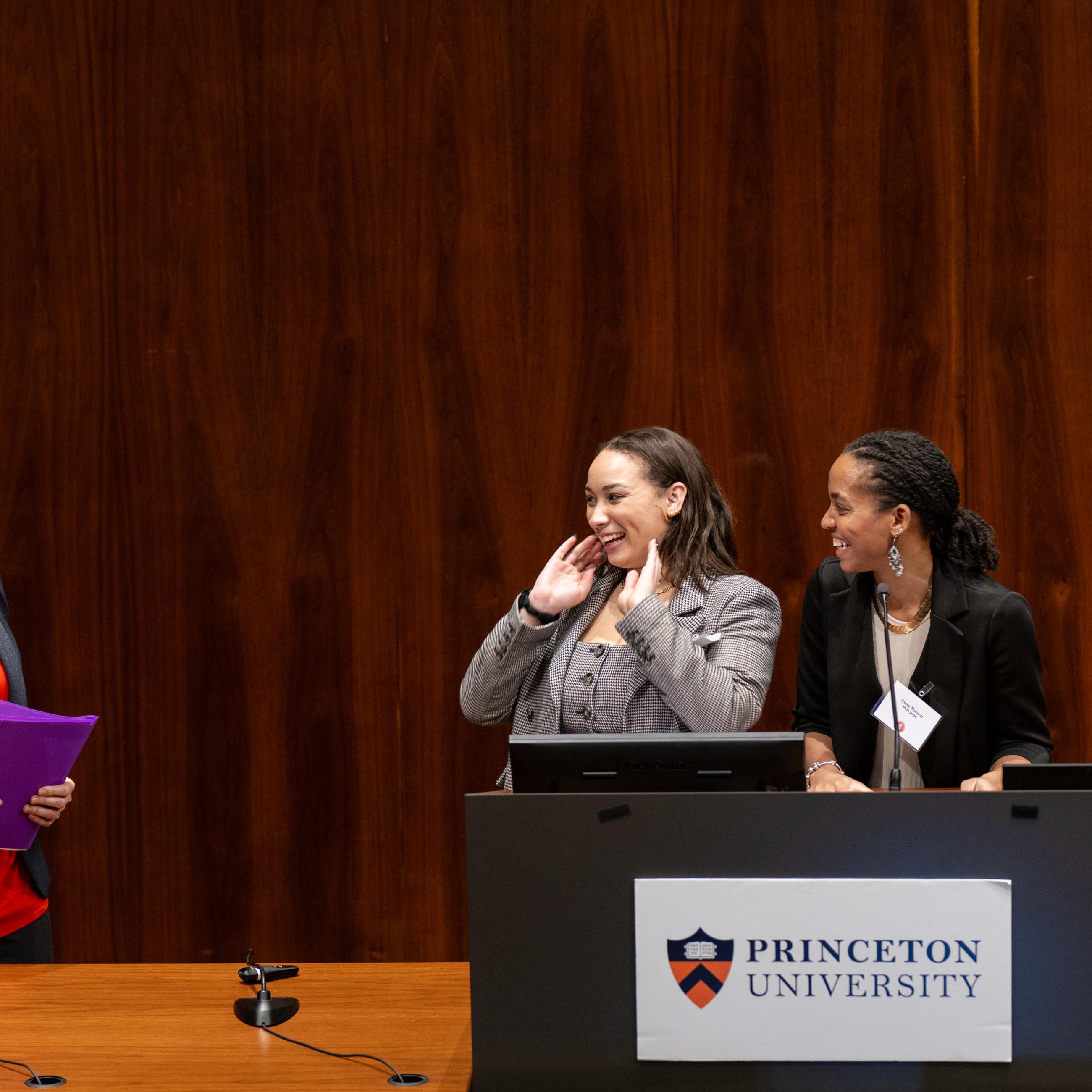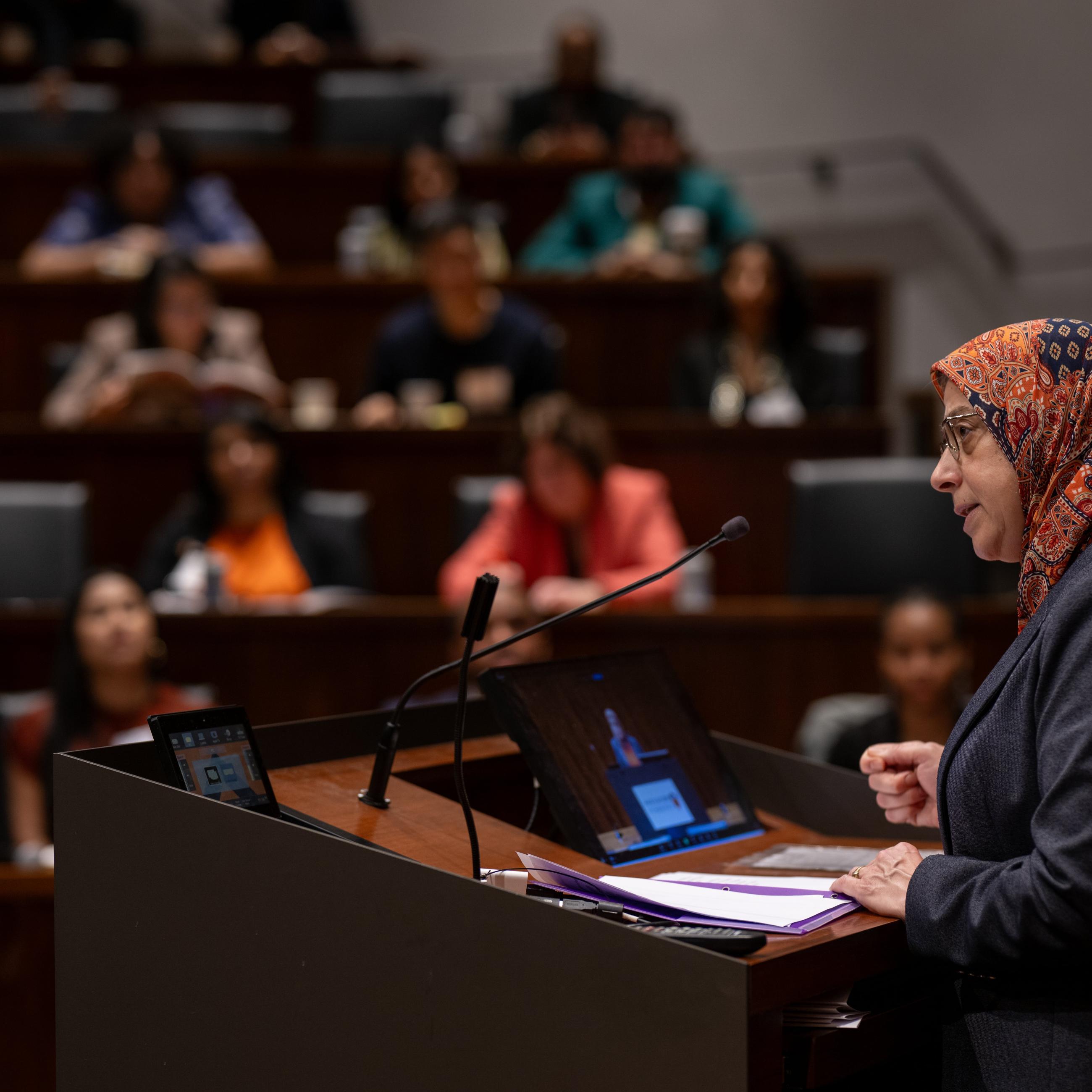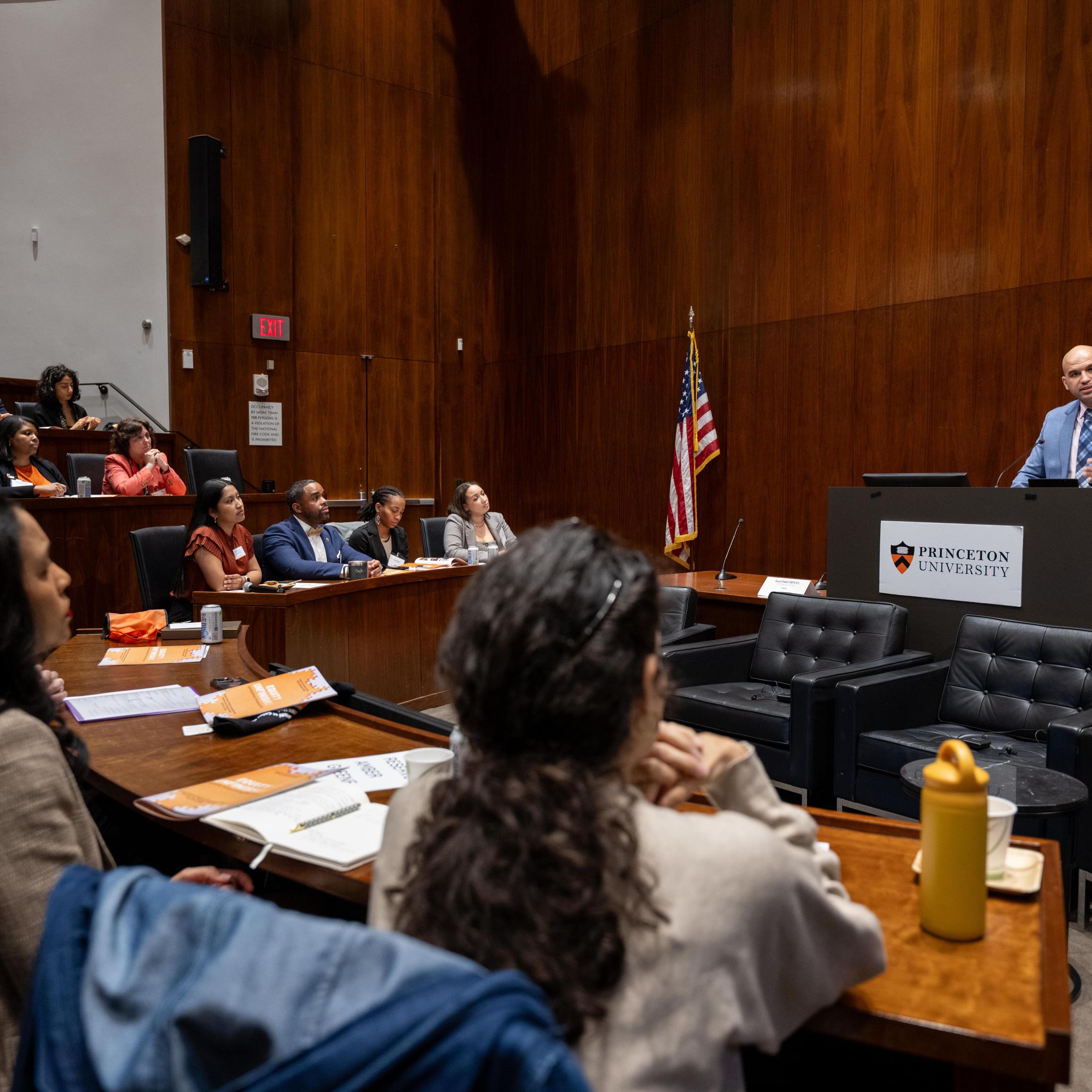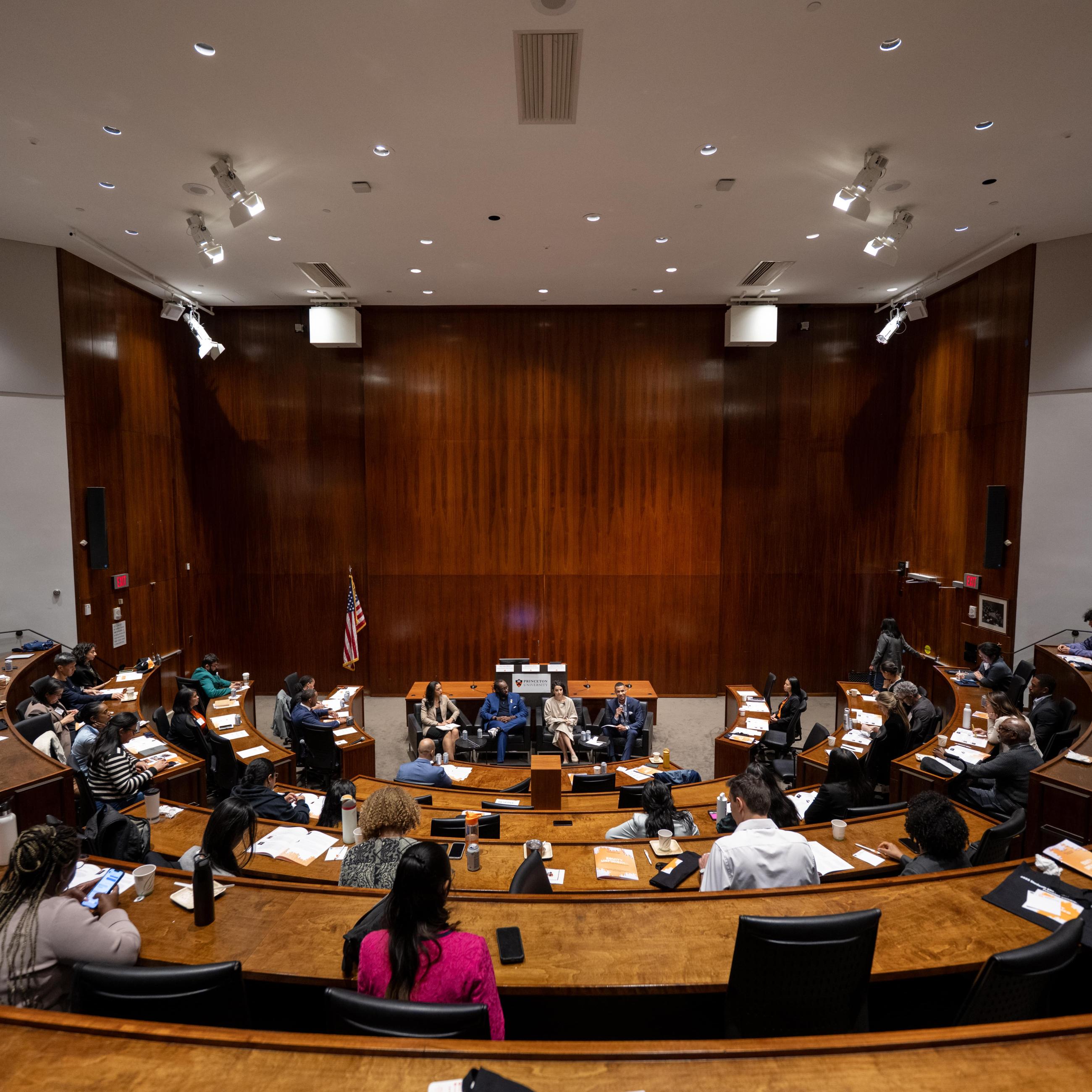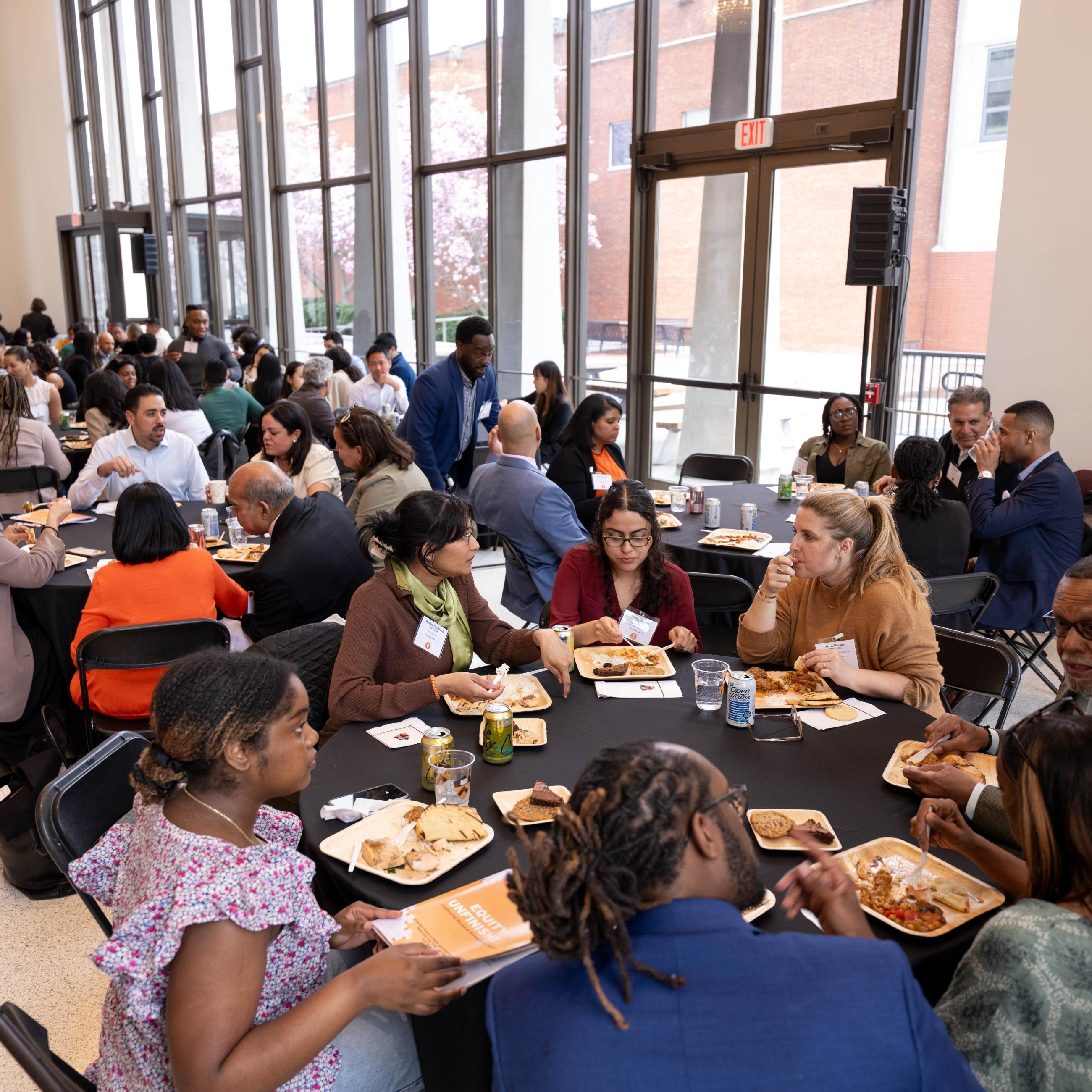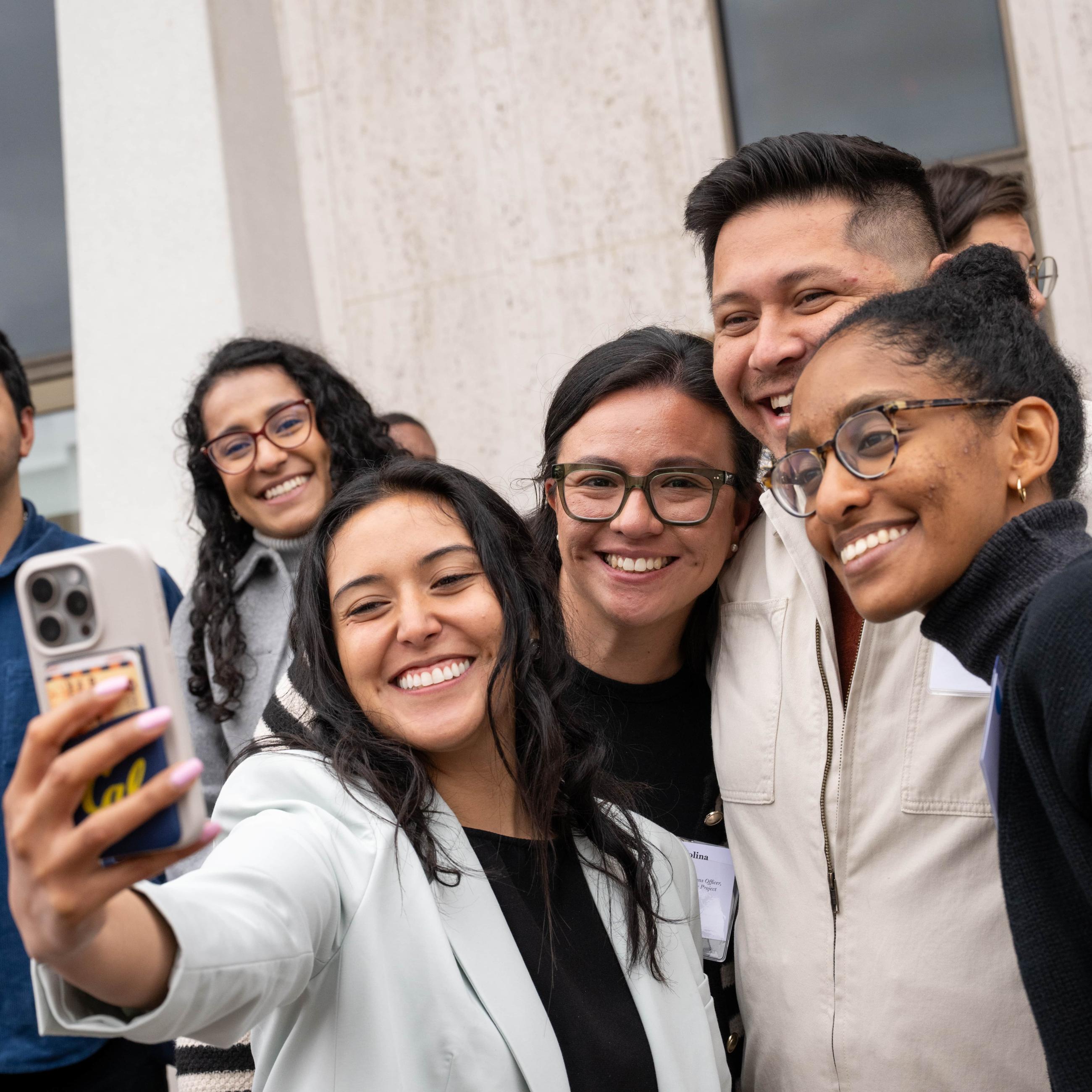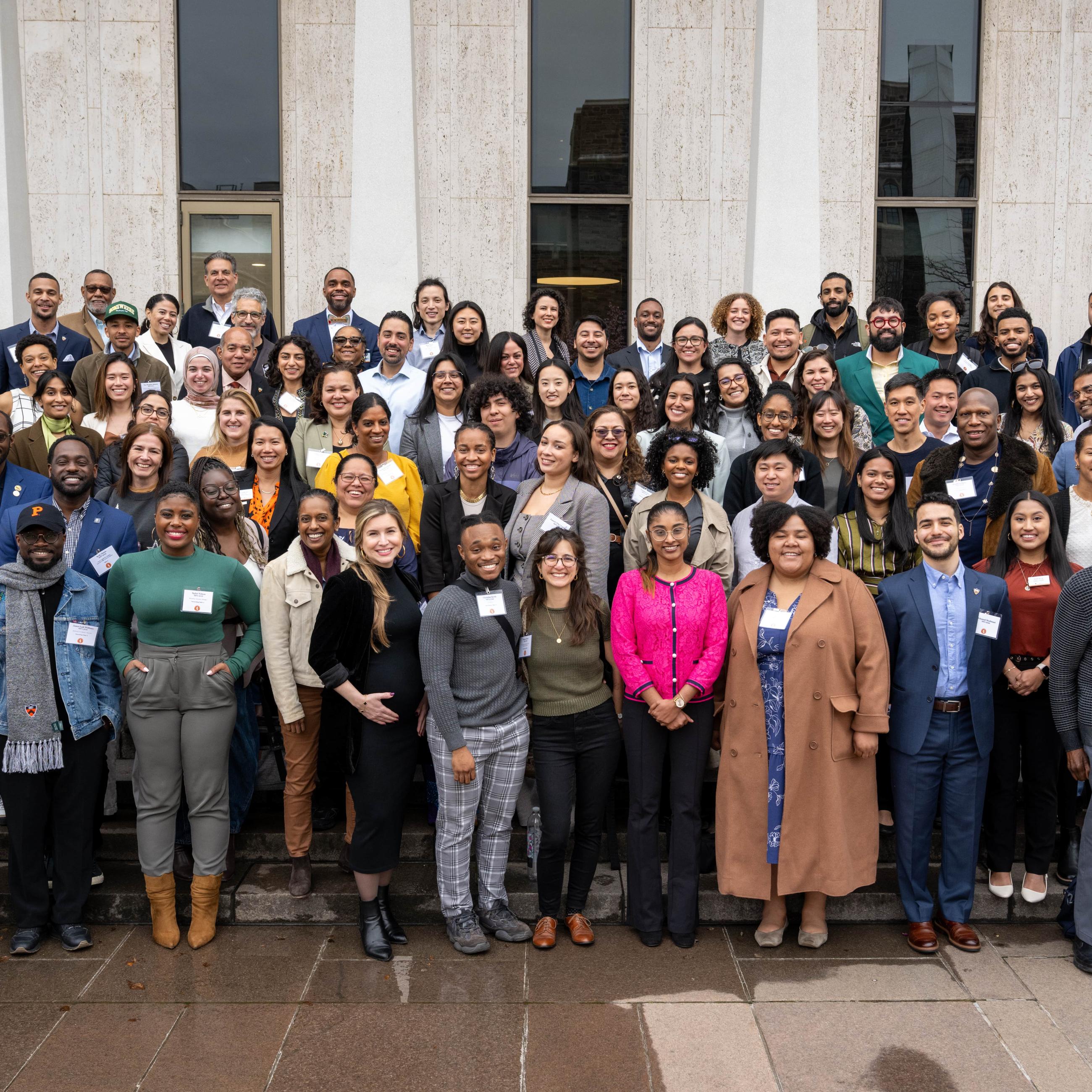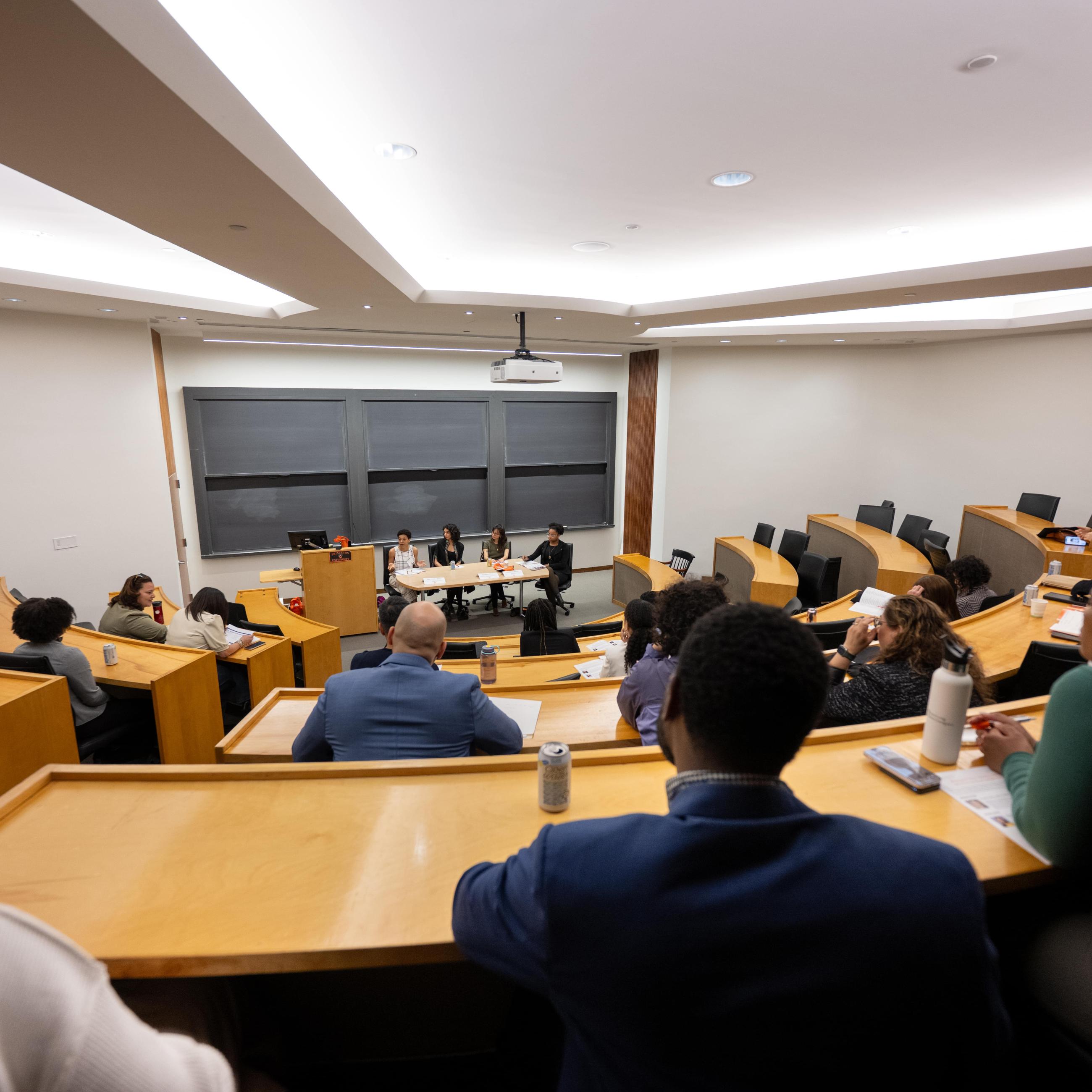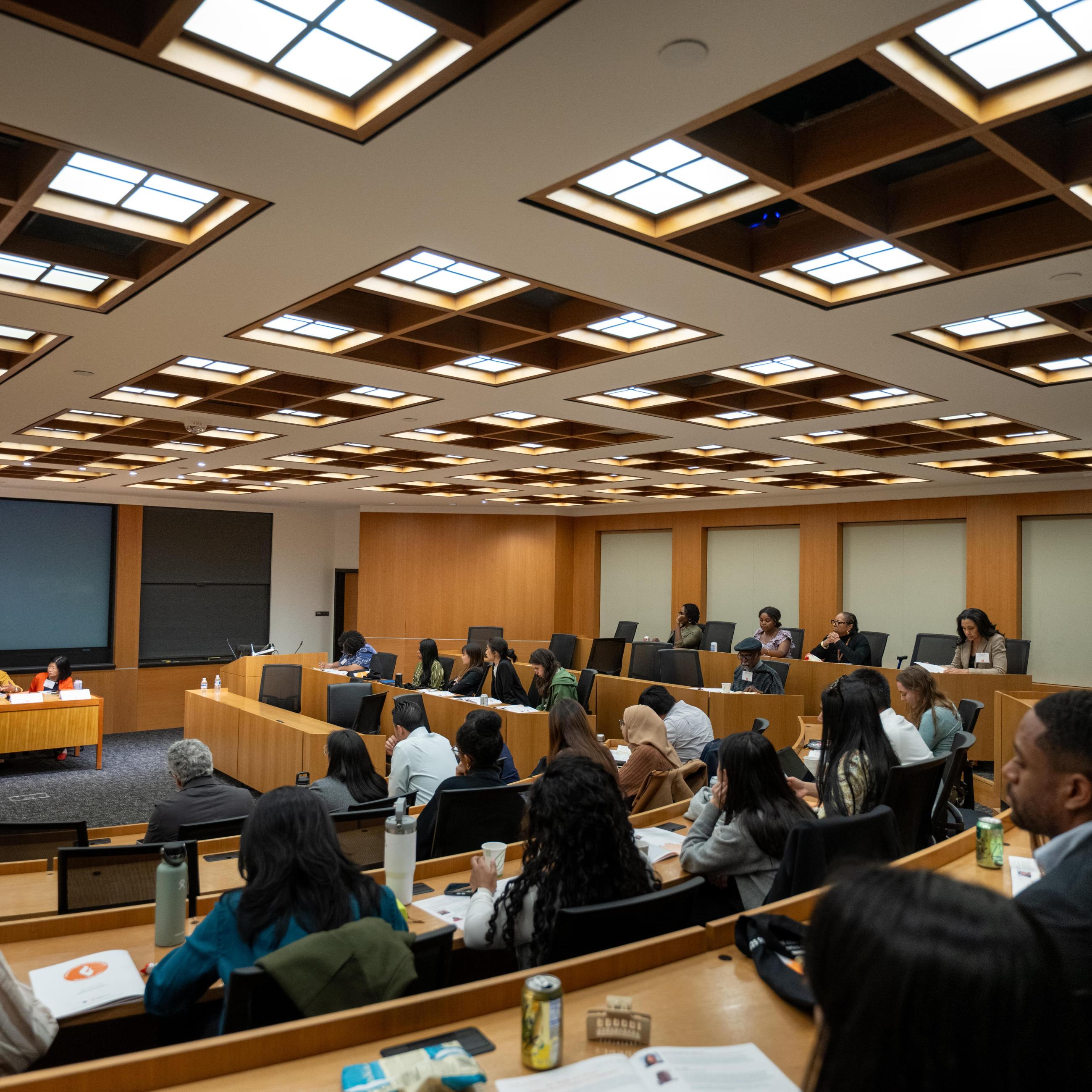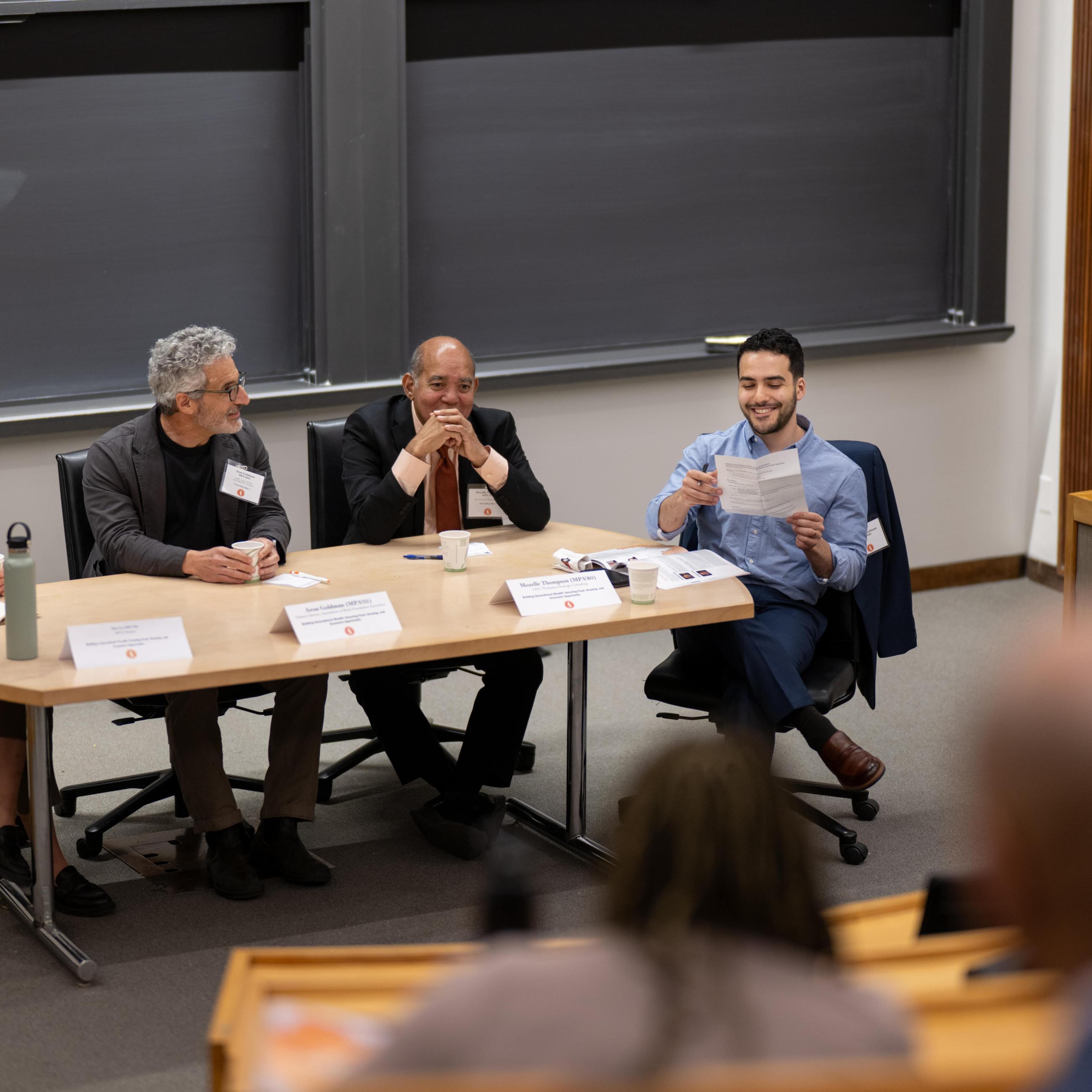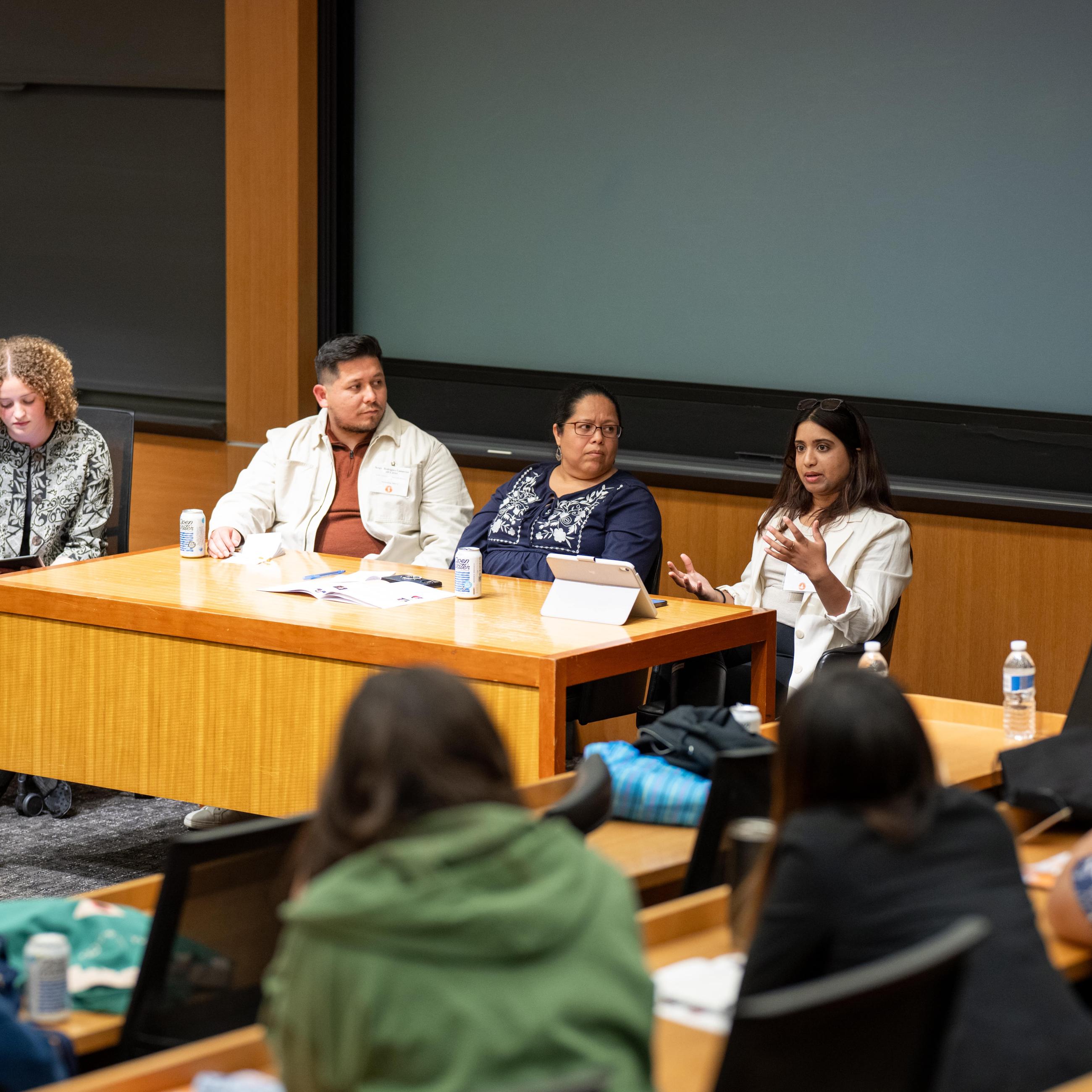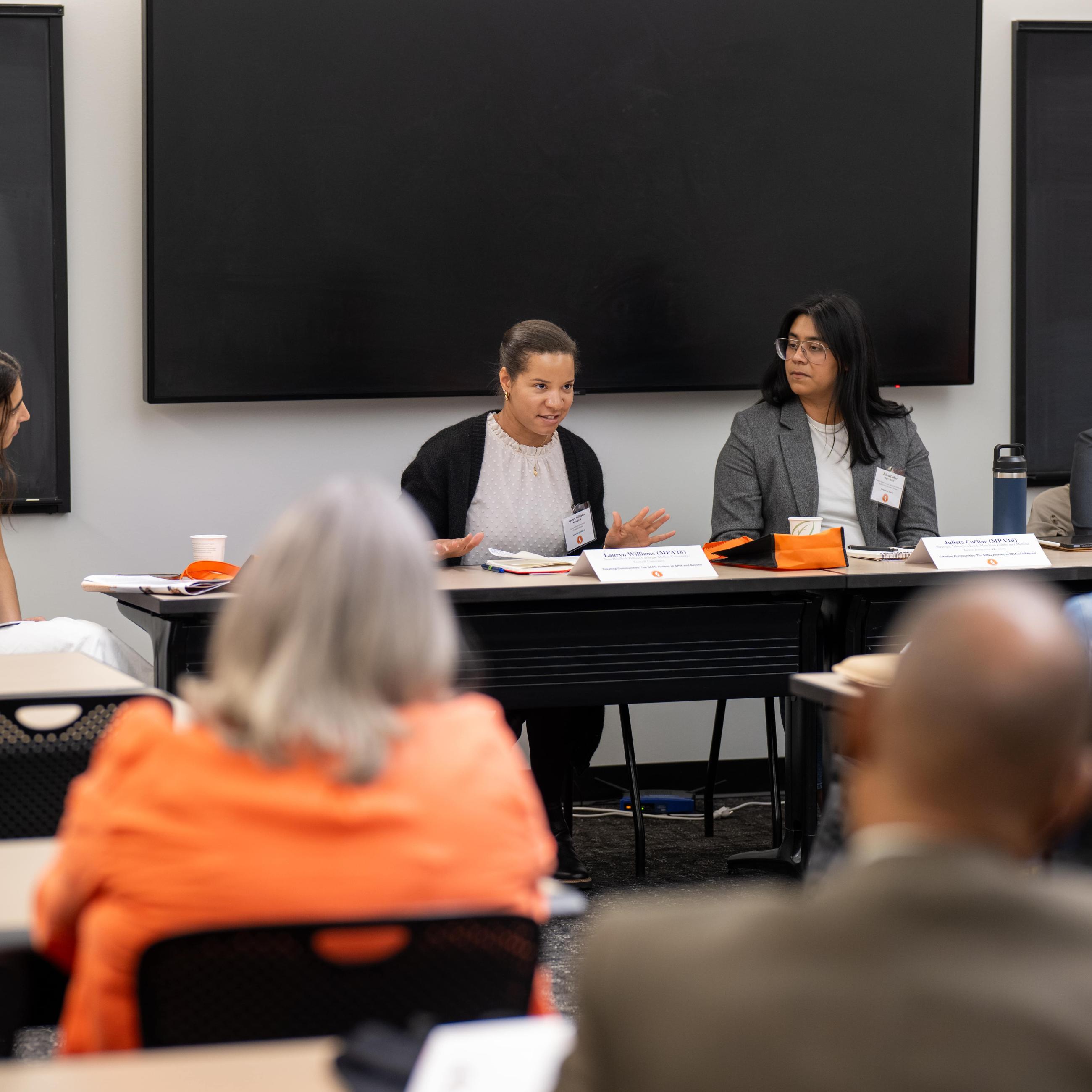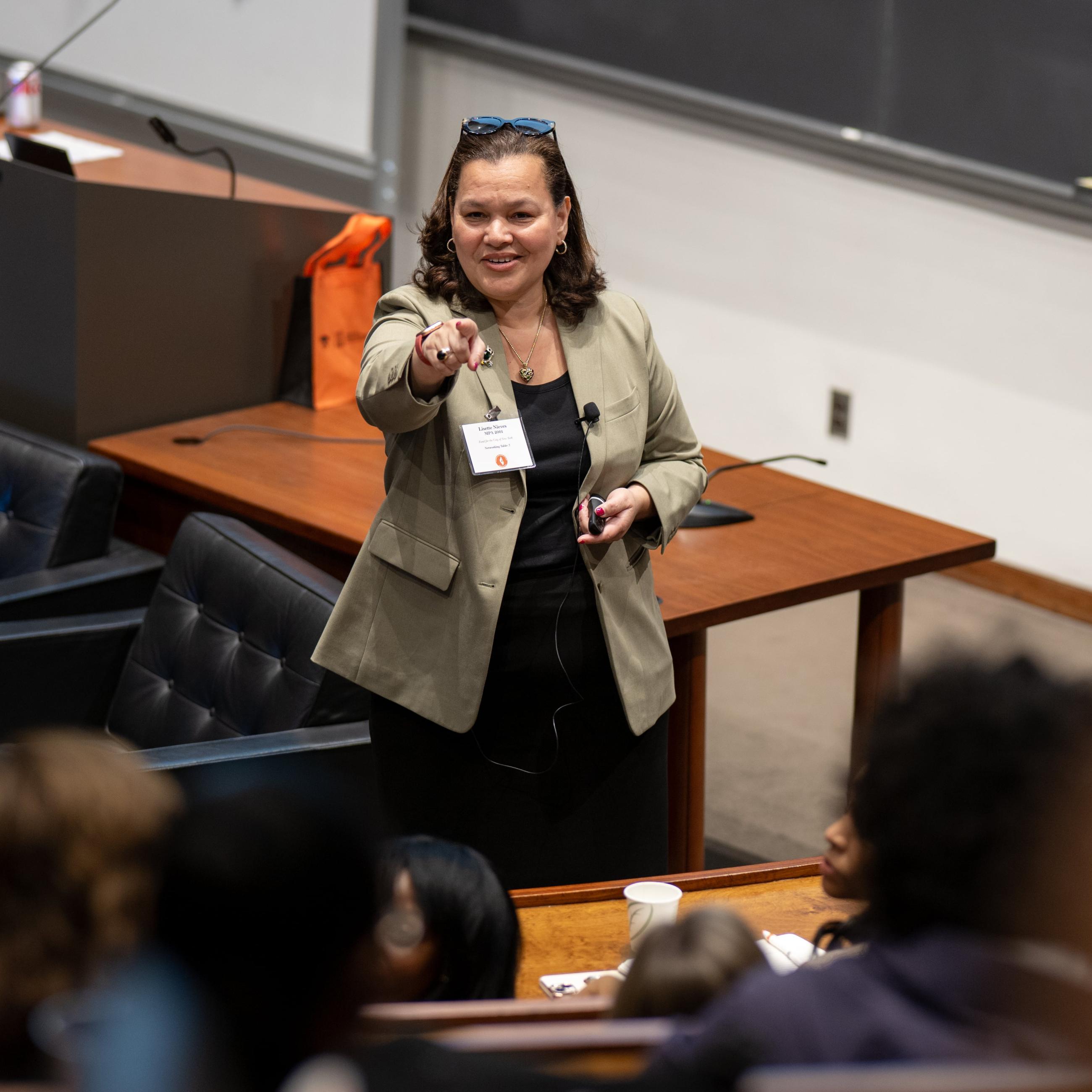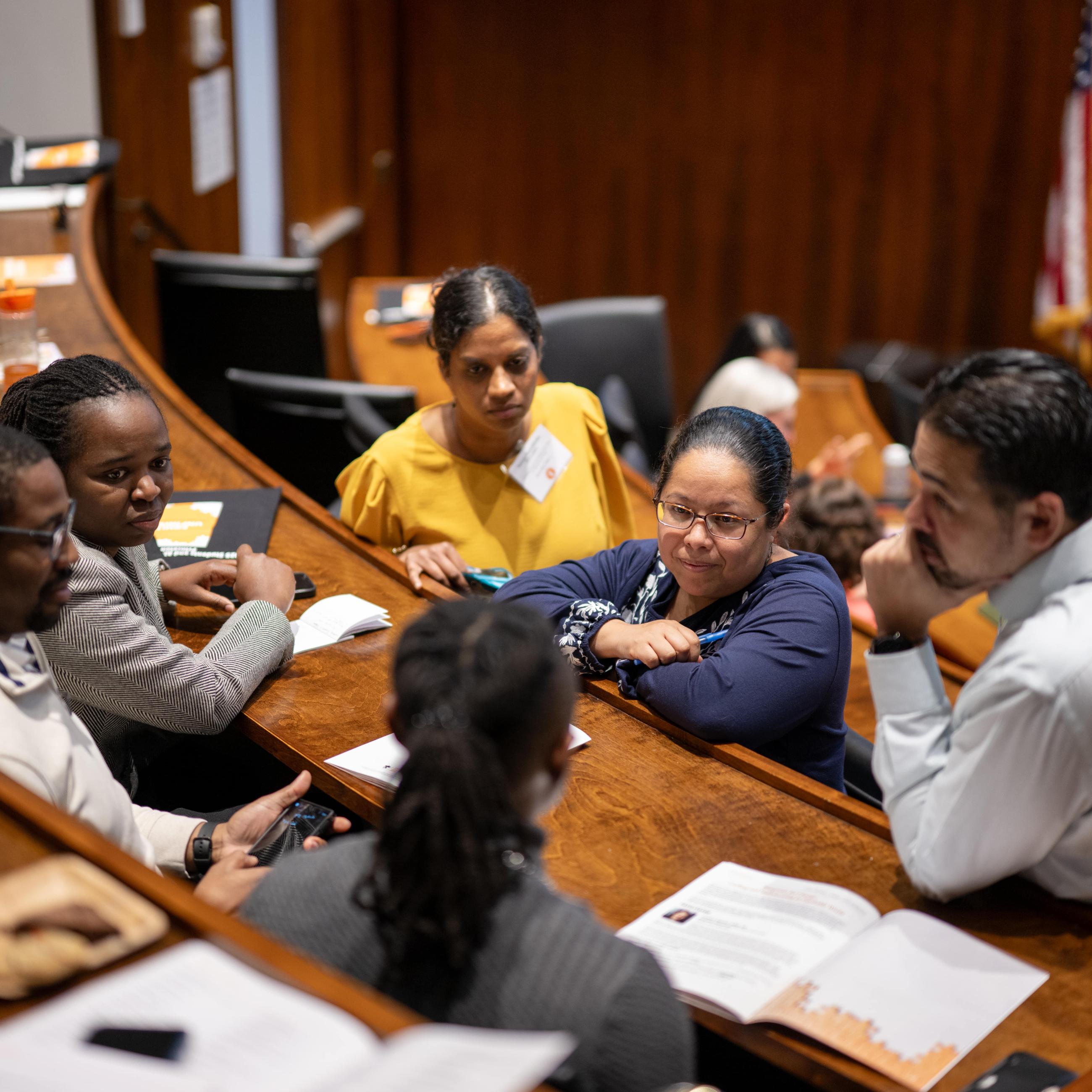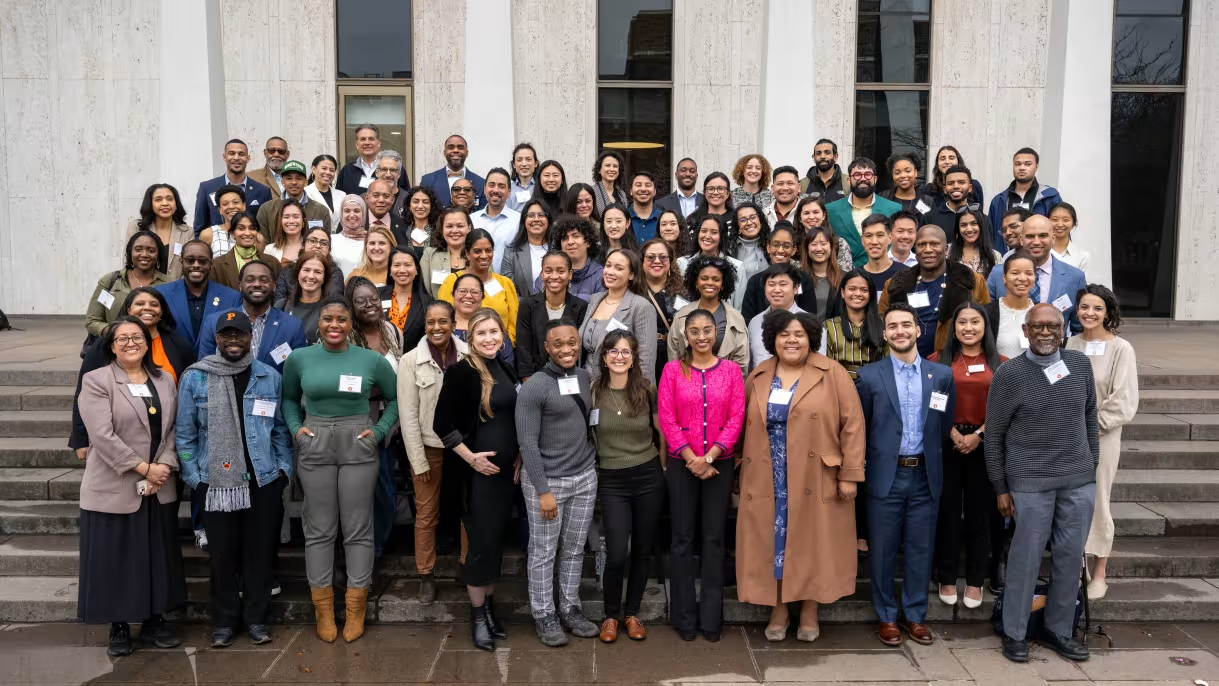

Princeton SPIA Community Shines at SAOC Spring Symposium
Ask a sampling of Princeton School of Public and International Affairs students or alumni what they value most about their education and, inevitably, they will say “the community.” The strength of the Princeton SPIA network was on full display on April 5 and 6 at the annual Students and Alumni of Color (SAOC) Spring Symposium.
During the conference, billed “Equity Unfinished: Confronting Racism and Reimagining Justice,” Princeton SPIA alumni and students gathered to share insights, experiences, and business cards as they heard from a variety of speakers on today’s most pressing policy challenges.
The event also served as an opportunity to recognize Rochelle Haynes MPA ’06, managing director of What Works Cities at Results for America. She received the 2025 Bullard Award, which honors an alumnus who has served as an exemplary mentor.
Hosted by SAOC, an affinity space that is dedicated to the social, political, and professional development of Princeton SPIA students and alumni, the conference was open to all of the School’s students and alumni.
“It was the most impactful, most powerful event I’ve been to at Princeton so far,” said Adán Chavez MPA ’26. “It was really empowering to see so many former students of color who are in really influential and inspiring positions of public service. It was also grounding because the alumni were so humble and ready to be as helpful as they could. It felt very collegial and affirming for the rest of my time at Princeton and beyond.”
The gathering began with a welcome from Dean Amaney Jamal and a keynote address by Yusuf Dahl MPA ’17, chief executive director of The Century Promise. Dahl talked about his experiences as a formerly incarcerated person and how his own experiences with housing discrimination led him to advocacy work. He urged students to take responsibility for driving social change.
“Every one of us in this room is united by a shared belief, and that’s that injustice is never someone else’s problem to solve. It’s ours to challenge, it’s ours to confront, and it’s ours to change,” Dahl said.
Laurel Cooke MPA ’25, co-chair of SAOC, said Dahl’s remarks set the stage for an inspiring day of connection and community. A highlight for her was the networking hour, during which students had a chance to learn more about potential career tracks from alumni.
“I had three calls this week with people I met that weekend or people who introduced me to other people,” Cooke said. “The message from the alumni was, ‘We want to support you. If you need us, we’re here.’”
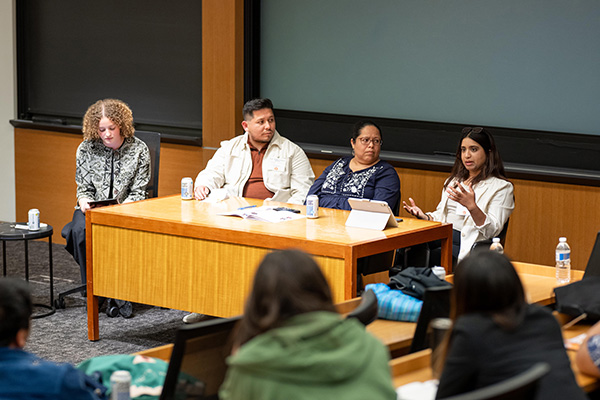
Maribel Hernandez Rivera MPA ’10, national director of immigrant community strategies for the American Civil Liberties Union, said she tries to attend SAOC regularly. Many of her closest friends come from the affinity group, she noted.
“It’s really the community that draws me — knowing that I can come to a community of like-minded people and wrestle with issues that we are grappling with in this moment,” she said. “It’s a way to continue to stay connected to Princeton and connect with current students.”
Hernandez Rivera said one reason the symposium is such an important space is that it allows students who may be first-generation college students or who may not have a vast professional network to learn about the job opportunities they can explore and build a network.
“I had never heard about the ACLU until I went to law school,” she said. “Being able to meet a chief of staff or the head of a foundation and contact them – that’s not as accessible as we wish for students, especially students who come from underprivileged backgrounds.”
She added that having the conference open to all students, faculty, and alumni is crucial in creating a space to talk about why diversity is important.
“As policymakers, we have limitations to our own experiences,” she noted. “The only way we better understand how our work affects others is by hearing from others and their experiences.”
Surujdai Mukhram MPA ’26, a first-generation college student from Guyana, said she attended the symposium hoping to meet other students with a similar background to feel a sense of community as she navigates an unfamiliar environment. She noted a panel on building generational wealth as being particularly helpful.
Other topics discussed throughout the day included immigrant rights, climate’s impact on communities, education and media narratives, and how policy can advance justice.
“It was a weekend for inspiration,” said Eduardo Bhatia ’86, the John L. Weinberg/Goldman Sachs & Co. Visiting Professor and Visiting Lecturer in Public and International Affairs at Princeton SPIA, who attended the symposium. “The energy was so overwhelming in terms of the relationships that existed and new relationships that are being created. It’s really wonderful to watch the interactions that bubble up.”


